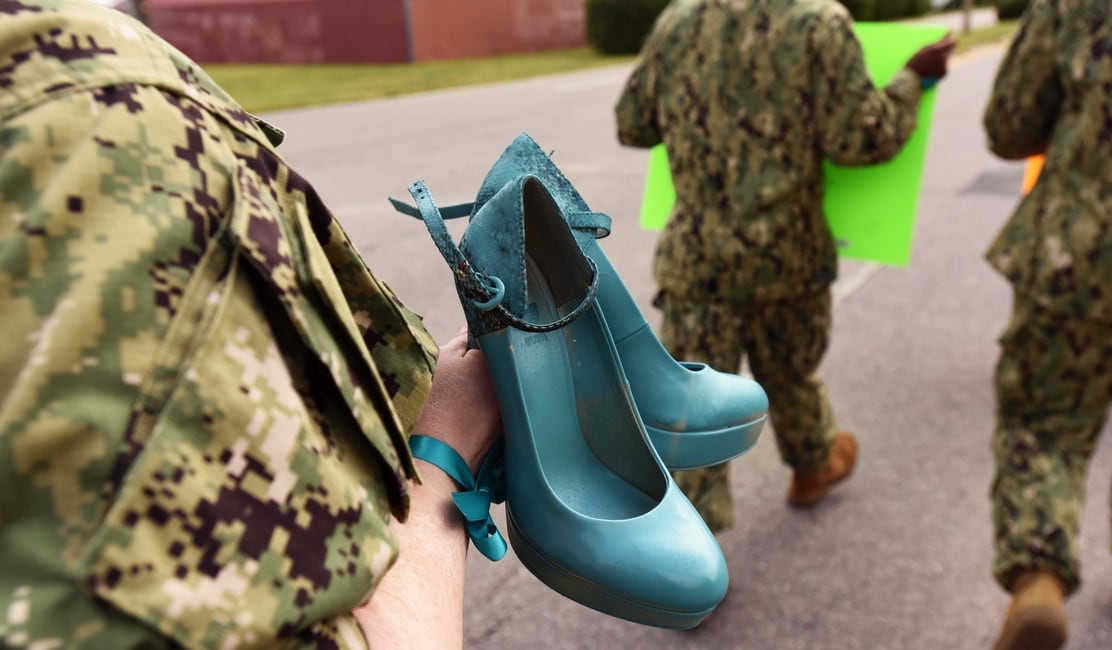The U.S. Supreme Court has agreed to hear the federal government’s case against a military court ruling that reversed several military rape convictions for crimes committed more than a decade or two ago.
The controversial decision by the U.S. Court of Appeals for the Armed Forces, based on previous court decisions, placed a 5-year time limit on prosecuting crimes of rape that occurred between 1986 and 2006.
The case, United States v. Briggs, is a consolidation of filings named for Air Force Lt. Col. Michael Briggs who, in 2014, was convicted of raping a staff sergeant in 2005. The case came to light after Briggs called the victim in 2013 to confess — a conversation the victim recorded.
“I will always be sorry for raping you,” he told her, according to court documents.
The recording was key to bringing Briggs to trial and he was prosecuted under the assumption that there was no statute of limitations for pursuing rape cases in the military. He was found guilty, sentenced to five months confinement and dismissed from the service.
Years before the Briggs case, the Uniform Code of Military Justice held that rape was a crime punishable by death and therefore had no time limit for prosecuting the crime. But in 1998, the U.S. Court of Appeals for the Armed Forces, or CAAF, ruled that some rape charges were not punishable by death, and the standard five-year limit for prosecuting most crimes was instated.
RELATED

In 2006, however, Congress amended Uniformed Code of Military Justice to ensure that the time limit for rape cases was abolished. Briggs’s conviction, as well as others, came after the law was changed.
But in February 2018, the military appeals court affirmed the statute of limitations for cases that occurred in a gray area under the law, from 1986 to 2006.
For Briggs, the timing couldn’t have been better. He appealed his conviction based on the 2018 decision, known as United States v. Mangahas, and won.
The CAAF decision also affected at least two other military rape cases – that of Air Force Master Sgt. Richard Collins, who raped an airman in 2000, and Air Force Lt. Col. Humphrey Daniels, convicted of raping a woman in 1998 in Minot, North Dakota.
In both cases, the Air Force Court of Criminal Appeals cited the Mangahas case in overturning the service members’ rape convictions and dismissing the charges, rulings that were affirmed by CAAF. Now, however, the Collins and Daniels decisions have been rolled into the Briggs case to be heard by the Supreme Court.
The Mangahas and Briggs decisions already have resulted in at least 10 other military rape cases being dismissed.
Last year, the Mangahas decision led the U.S. Army to drop its case against retired Army Maj. Gen. James Grazioplene, accused in 2015 of sexually assaulting a girl between 1983 and 1989.
A military judge cited the time limit in dropping the charges against the officer, who now faces criminal charges for the crimes in civilian court in Virginia.
The military services have long struggled with the problem of sexual assault in the ranks. This year, the Department of Defense revealed that the number of reported sexual assaults rose by 26 percent between 2016 and 2018, from 4,794 to 6,053.
A survey of active duty troops also released this year found that sexual assaults are more prevalent than the official numbers show: in an anonymous survey, 20,500 service members said they experienced a sexual assault in 2018, up from 14,900 in 2016.
In petitioning the Supreme Court to consider Briggs, U.S. Solicitor General Noel Francisco cited former Defense Secretary James Mattis, who called the crime “one of the most destructive factors in building a mission-focused community.”
Francisco called the crime “devastating to the morale, discipline, and effectiveness of our armed forces.”
Now, however, “the CAAF has closed the door on prosecuting rapes that occurred before 2006 — even admitted rapes like the one at issue here,” Francisco wrote. "That result contravenes the statutory text, Congress’s evident intent to root out and punish military rape, and the military’s constitutional latitude to punish military crimes more strictly than civilian ones. And it will prevent the military from holding rapists accountable in a number of cases.”
For the Briggs case, the high court has allotted one hour for oral arguments, to be heard sometime in the spring.
Following the justices’ announcement, advocates for sexual assault victims called the review a “monumental step in the right direction.”
“Harmony and the other survivors who had justice ripped away from them deserve a resounding response from the country’s highest court that this is not something that we as a nation will tolerate,” said Protect Our Defenders President and retired Air Force Col. Don Christensen, referring to Harmony Allen, raped in 2000 by Richard Collins and who has filed a brief to the U.S. Supreme Court protesting the vacation of Collins’ charges.
“[We] are hopeful the Supreme Court will do the right thing and restore justice for the military sexual assault survivors whose rapists’ convictions were wrongly overturned," Christensen said.
Patricia Kime is a senior writer covering military and veterans health care, medicine and personnel issues.









